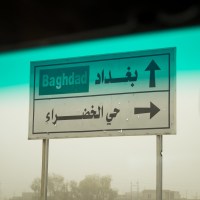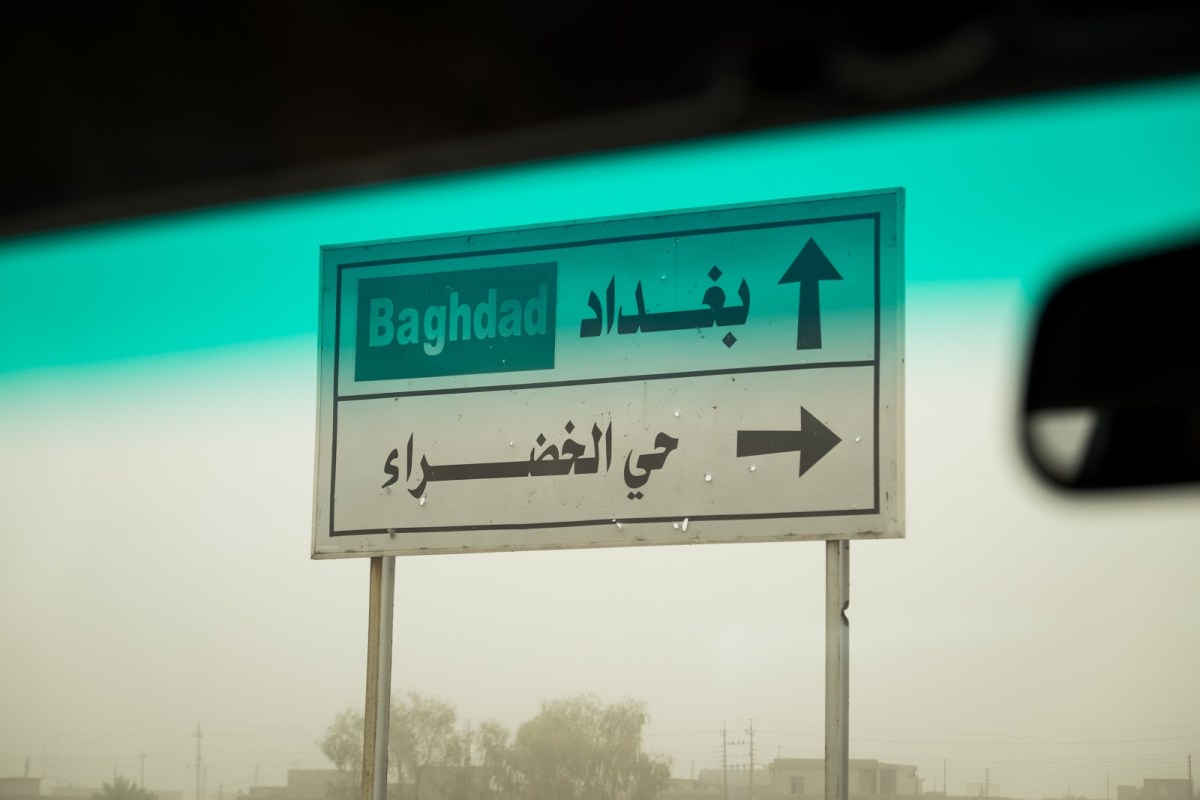The votes are in, and few experts and political pundits here in Iraq saw it coming.
All signs seemed to point to the status quo, an easy win for the incumbent prime minister, Hayder al Abadi and his party. Abadi’s administration oversaw the defeat of ISIS in Iraq. He is a rare ally of both Iran and the United States. He’s known for taking hard stances on corruption, and many experts consider him a strong option for helping Iraq rebuild after the war.
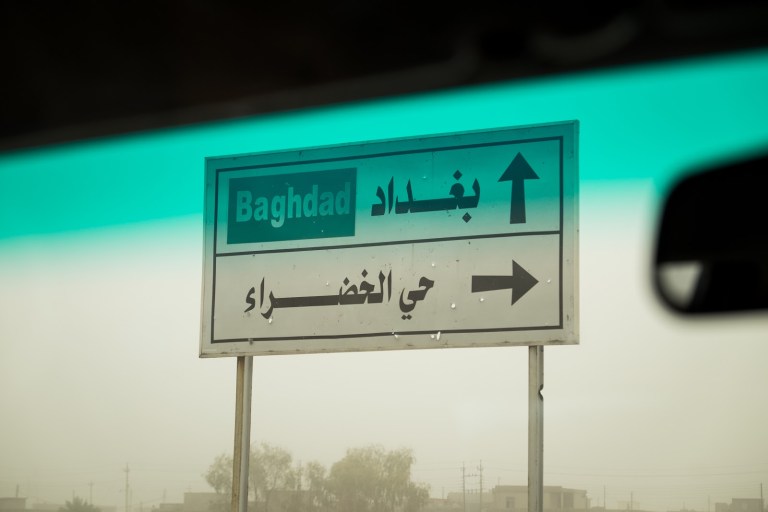
But the experts, pollsters, and pundits got a surprise this month.
Prominent Shia cleric Moqtada al Sadr’s Sairoon Party has won the largest number of seats in Iraq’s parliament, giving them a strong say over Iraq’s new government. (Sadr himself cannot become prime minister because he did not run for a seat in parliament.)
The son of an ayatollah who was assassinated by Saddam’s regime, Sadr took up his father’s theological mantle and has become well known by enemies and allies alike for being adamantly “pro-Iraq” and opposed to foreign powers like Iran and the United States.
During the Iraq War, for example, Sadr led multiple uprisings against the US military. For this reason, Americans who recognize Sadr’s name may associate him with terrorism. He and his forces were responsible for the deaths of hundreds of civilians, Iraqi military personnel, and US soldiers.
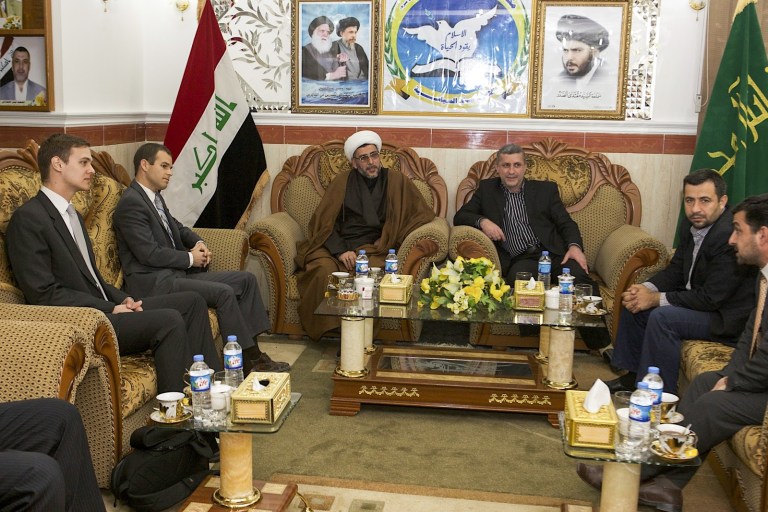
In February of 2012, our Preemptive Love team was granted a rare meeting with Sadr himself, but he backed out at the last minute, sending a lieutenant to speak with us instead. I was there—our host’s demeanor was polite but frosty, to say the least.
Sadr’s deputy smiled and welcomed us with that famed Iraqi hospitality, but his guards stood at the ready. The room was tense—not surprising, considering it wasn’t that long ago that Sadr called for the death of Americans and for his militiamen to “terrorize your enemy.”
His deputy, after greeting us—and before we said anything—stated very simply and unapologetically: “Of course we fought your soldiers. We feel we have the right to defend our country from invaders.”
I’ve never forgotten the simplicity of his words, and I’ve heard them echoed by many Iraqis since. After repeated occupations, outside interference, foreigners bankrolling terrorists and wars, Iraqis feel their country is not their own. Sadr invited them to take it back. It’s not hard to see why that would appeal.

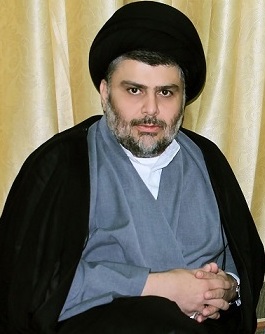
And it’s not just interference from the West. Sadr has also distanced himself from Iran in favor of his own version of Iraqi nationalism, something that has particularly appealed to poorer Shia families who were largely marginalized under Saddam and have had very little say over their own lives.
When considering Iraqi politics, this question of “having a say” or feeling a sense of agency is extremely important. Many of my Iraqi friends claim (and I think fairly) that Iraqis don’t have the luxury of debating politics without considering the impact of outside powers.
The lines between international and domestic policy are blurred here. For Iraqis, there are nations who meddle and nations who are meddled with. Iraq has been the former at times (think Kuwait or Iran under Saddam). But since the 2003 US invasion, if not since the first Gulf War in 1991, Iraq has been decidedly the latter.
The United States, the Arab Gulf countries, Iran, Turkey, and many European nations have a vested interest what happens in Iraq. This war-torn nation has subsequently become a kind of stadium where foreign powers come to compete and battle through proxy.
And who often pays the price? Iranian and American and Saudi civilians don’t suffer from these proxy wars, at least not directly. It’s the everyday Iraqi families who pay the price of every conflict.
So you can understand why someone like Sadr might appeal. He has a significant following, he has proven he can form unlikely alliances—as a religious cleric, consider his alliance with the communist party—and most importantly: he is adamantly opposed to outside influencers moving and working and positioning in Iraq.
After occupations by the British, United States, and ISIS—not to mention endless meddling from Iran, Turkey, and others—it’s no surprise that many Iraqis would vote for someone they believe can do what’s best for Iraq first, with an arm strong enough to keep outside influencers at bay.
So you’ve read this far (well done!), and here’s a question: so what? Why does this matter? You’ve got all kinds of problems to deal with in your own life, home, community, why pay attention to faraway political trends on the other side of the planet?
Peacemaking starts with listening.
True change starts with listening.
Understanding, love, transformation, healing…none of that happens unless we listen to one another. As you continue serving people in countries like Iraq and Syria, we need you leaning in with us to listen. If we bring ‘help’ but don’t listen, we risk causing harm.
So we pay attention to the political climate because, of course, it affects our work in the country, but we also pay attention because we love these people. We have high hopes for their good, for a better future for them, and to love is to listen. When millions of people vote for an underdog cleric, that’s worth noting! We care because it will matter in the months and years to come, and we’re grateful to walk into those days ahead knowing you’re with us!
We’re listening.

